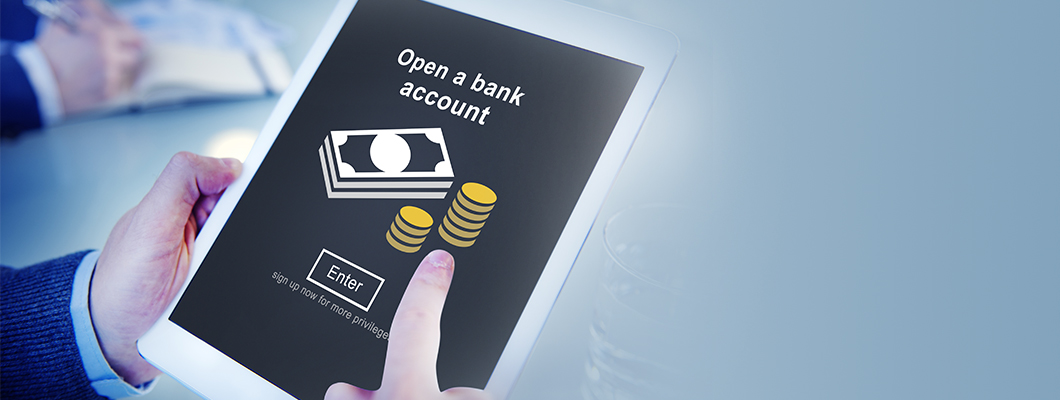Top Tips for Opening a Savings Account: Ensure Reliable and smooth Setup
Opening up a bank account might appear straightforward, yet a systematic technique can dramatically improve the experience and set the stage for a successful financial connection. By recognizing the selection of account types offered, collecting important documentation, and contrasting banking institutions, one can stay clear of common pitfalls.
Understand Different Account Types
When opening up a checking account, it is necessary to familiarize yourself with the numerous account types offered. Understanding these choices will certainly enable you to select an account that best fits your financial demands and objectives.

Interest-bearing accounts, on the various other hand, are created for conserving cash and typically provide greater rate of interest than checking accounts. They may have withdrawal limitations, motivating you to save in time. For individuals trying to find a greater yield on their savings, CDs offer set interest prices for a defined term, however they require you to secure your funds until maturity.
Furthermore, there are specialized accounts like cash market accounts and retirement accounts, each with special attributes and benefits. By comprehensively understanding these account kinds, you can make enlightened choices that line up with your monetary method and lifestyle.
Gather Required Paperwork
Collecting the needed paperwork is a critical action in the procedure of opening a checking account. Appropriate paperwork not just facilitates a smooth application procedure but also helps in verifying your identification, ensuring conformity with regulative requirements.
Usually, you will require to offer a government-issued photo identification, such as a ticket or driver's permit. This works as proof of identification and residency. Additionally, a Social Protection Number (SSN) or Specific Taxpayer Identification Number (ITIN) is usually needed for tax obligation reporting objectives. Some bankss might additionally ask for proof of address, which can be demonstrated with utility costs, lease arrangements, or bank statements.

Moreover, if you are a minor, parental approval and recognition might be called for. It's suggested to get in touch with the particular bank regarding their paperwork needs ahead of time, as these can vary. By making sure all essential papers prepare, you can expedite the account opening process and prevent possible hold-ups.
Study Banks and Charges
A thorough comparison of various bankss and their fee frameworks is important for selecting the appropriate monetary organization for your demands. Various bankss supply a series of services, and recognizing their fees can dramatically impact your overall banking experience. Begin by recognizing your financial needs, such as whether you need a checking account, financial savings account, or both.
Following, check out the fee structures related to each account kind. Typical costs consist of month-to-month maintenance costs, overdraft charges, atm machine use fees, and foreign purchase costs. Some bankss might forgo these fees if you maintain a minimal equilibrium or set up direct down payments.
In addition, investigate any costs connected to account solutions, such as cable transfers, published declarations, or check orders. It is likewise a good idea to evaluate the rates of interest offered on savings accounts, as these can differ significantly among institutions.
Take into consideration Online vs. In-Person
Choosing between online and in-person financial can considerably influence your total banking experience and comfort (bank account opening). Each alternative provides special advantages that accommodate different preferences and way of livings
Electronic banking provides a high level of flexibility and ease of access. With the ability to manage your account from anywhere using a smartphone or computer system, electronic banking enables for fast transactions, balance checks, and bill settlements at any moment. Additionally, lots of on-line bankss give competitive rate of interest and lower charges as a result of reduced expenses prices.
Alternatively, in-person financial provides an individual touch that some clients might find encouraging. Visiting a physical branch permits direct communication with bank agents, which can be especially advantageous for complex inquiries or economic guidance. In-person banking also makes it possible for consumers to deposit money, get immediate help, and build partnerships with staff, promoting a feeling of trust fund.
Eventually, the choice in between online and in-person banking ought to be based upon your specific needs, comfort degree with innovation, and the particular solutions you need. Consider your banking routines and preferences very carefully to figure out which choice additional resources straightens best with your financial objectives.
Review Terms and Conditions

When examining the terms, pay attention to crucial elements such as this content costs, rates of interest, and account functions. Seek monthly maintenance charges, transaction limits, and fines for overdraft accounts or very early withdrawals (bank account opening). Understanding these charges can assist you avoid unanticipated costs and handle your financial resources better
Furthermore, take into consideration the rates of interest offered on financial savings or inspecting accounts. Greater rate of interest rates can significantly affect your financial savings gradually. It's also important to comprehend the terms associated to benefits, benefits programs, and promotional offers, as these can enhance your banking experience.
Lastly, guarantee you are conscious of the bank's plans on client solution, dispute resolution, and personal privacy. Familiarizing on your own with these conditions will certainly equip you to make informed choices and establish a productive partnership with your bank. Putting in the time to completely review the terms can prevent future misconceptions and foster long-lasting complete satisfaction with your financial experience.
Verdict
In final thought, an educated technique to opening a bank account facilitates a smooth and efficient configuration procedure. Comprehending the numerous account kinds, gathering necessary paperwork, and looking into bankss and associated fees are vital actions.
Opening up a bank account may seem straightforward, yet a methodical approach can substantially improve the experience and established the stage for an effective banking partnership.The most common types of accounts include examining accounts, cost savings accounts, and certifications of down payment (CDs)Cost savings accounts, on the other hand, are developed for saving cash and typically offer greater passion prices than checking accounts. Begin image source by determining your financial requirements, such as whether you require an examining account, savings account, or both.
Comprehending the numerous account types, gathering essential documentation, and investigating bankss and associated fees are vital steps.
 Alicia Silverstone Then & Now!
Alicia Silverstone Then & Now! Michael J. Fox Then & Now!
Michael J. Fox Then & Now! Amanda Bearse Then & Now!
Amanda Bearse Then & Now! Jeremy Miller Then & Now!
Jeremy Miller Then & Now! Mackenzie Rosman Then & Now!
Mackenzie Rosman Then & Now!